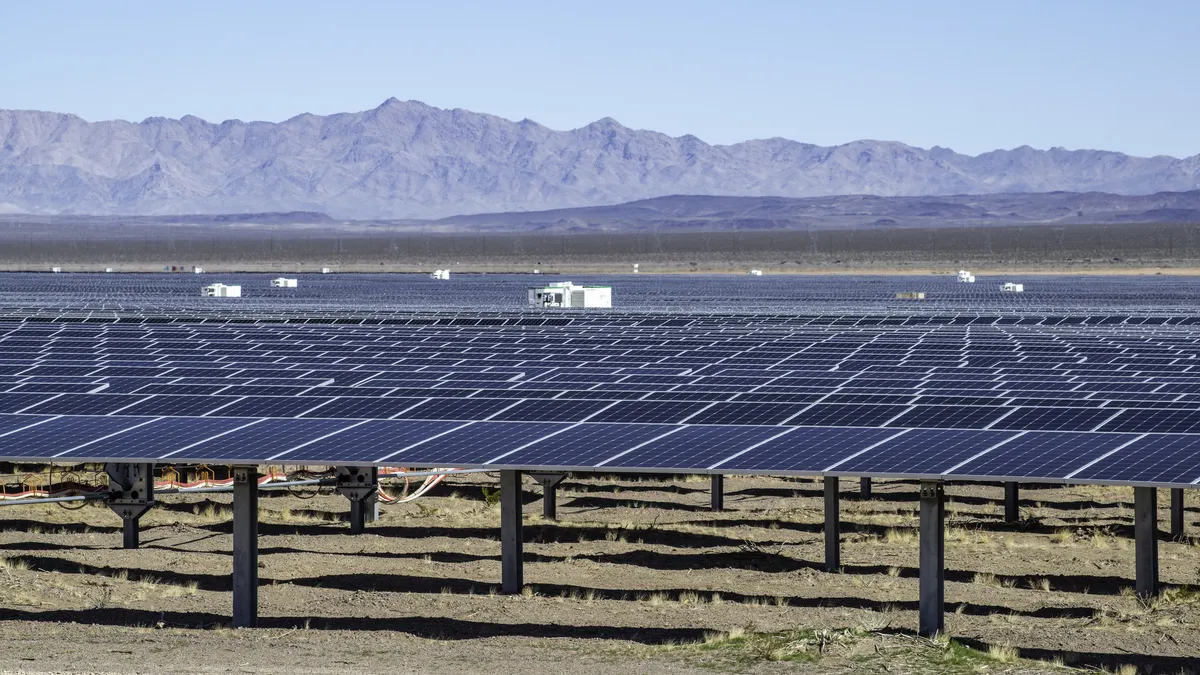Dive Brief:
-
After 20 years of falling prices and rapid growth, the events of the last six months have left solar a changed industry, according to CEOs of renewable energy companies who spoke on a Wednesday panel hosted by the American Council on Renewable Energy.
-
Demand for solar energy remains stronger than ever in spite of continued supply chain disruptions and the Department of Commerce investigation into alleged tariff circumvention, according to Steve Vavrik, CEO of Broad Reach Power. “Our challenge then shifts to getting the product to the customer,” Vavrik said.
-
However, CEOs on the panel disagreed about the best way for the industry to move forward. While Vavrik said the industry is too dependent on government intervention, other company leaders argued the industry’s success was a result of supportive policy and that advocacy government support should continue.
Dive Insight:
After the system shock triggered by the Department of Commerce investigation, renewable energy company leaders are split on how the industry should proceed — especially with regard to the ongoing role of government policy.
“Those of us with long tenure have ridden through cycles before,” Vavrik said during ACORE’s Wednesday panel of CEOs at its Finance Forum. But he argued that the industry is actually in a stronger position than ever before. “When we started, we needed government subsidies to sell our product. We don’t need that anymore... When I’m talking to my team, I flip into grandpa mode [and tell them] we’ve been through inflationary challenges in the 90s, and we got through it because ultimately the product is better, cheaper, faster. We’ll work through the challenges.”
Vavrik said throughout the panel that private capital and decreased government intervention would lead to greater growth of renewable energy. But some of his fellow CEOs were less convinced.
“Who here believes we do not need a tax credit?” Florian Zerhusen, president & CEO of BayWa r.e. Wind. “I don’t see any hands.”
Zerhusen argued that the fossil fuel industry has benefited from government tax breaks for over a hundred years, and that tax credits for renewable energy should remain in place so long as subsidies for fossil fuels continue. He also noted the potential funding in the Build Back Better plan for renewable energy, and said there is a need for policy that supports the growth of more domestic manufacturing.
The Biden administration on June 6 announced plans to invoke the Defense Production Act to spur domestic clean energy manufacturing, including solar.
But while Vavrik argued the private market would invest in domestic manufacturing on its own in response to the current supply crisis in the solar industry, Laura Stern, Co-CEO of Nautilus Solar Energy, said past history suggests this isn’t the case.
“All the plants started in response to [market demand] last time, are all mothballed now,” Stern said. “The reason we don’t have domestic manufacturing is it’s too expensive.”
But Vavrik contended that the potential automation of manufacturing means that the cost differential between the U.S. and other countries is “no longer relevant.”
“Go back to SunPower and ask them why their plants are not” open, Stern retorted, pointing to U.S. solar manufacturer SunPower Corporation.
The industry may have to accept that prices can’t continue to decline and must increase in order to ensure the reliability of supply chains and also to avoid issues such as forced labor, Zerhusen said. “Everyone is chasing down to the bottom and that is biting a lot of people in the ass now,” he said. “There are a number of projects with negative cash flow because of long-term fixed pricing.”
But after seeing the CEOs on the panel argue, Zerhusen concluded that it was going to take “something worse than the Auxin [tariff circumvention] case” to spur change.
“I think we will get there,” he said, “but I don’t think we are there yet.”














